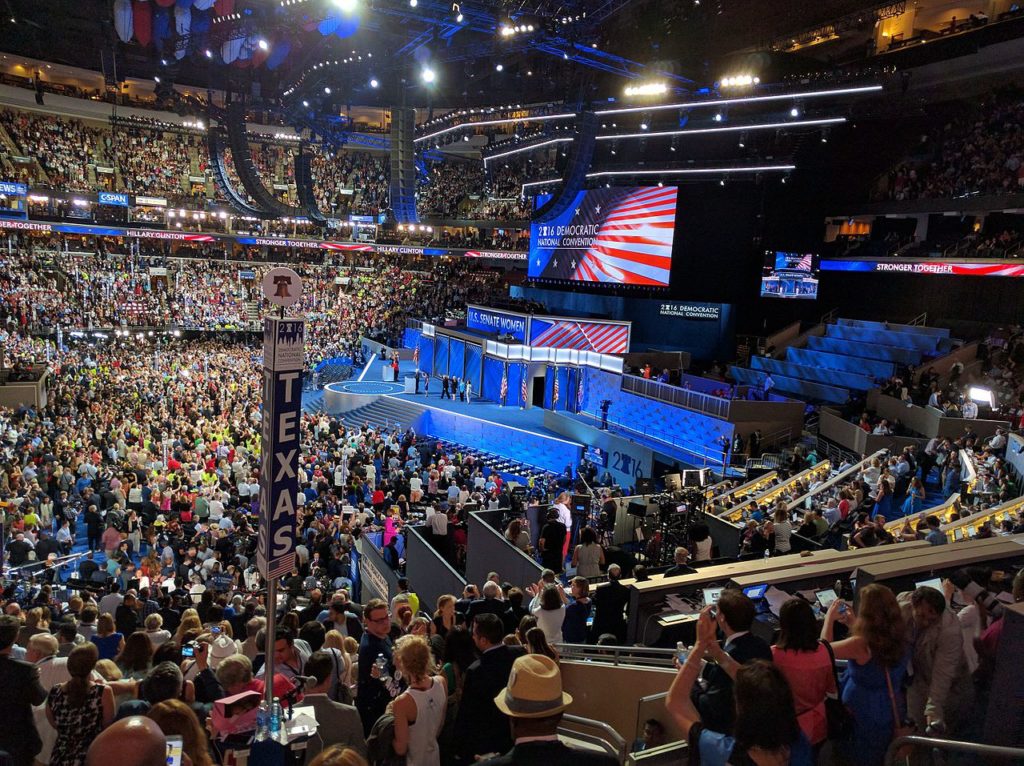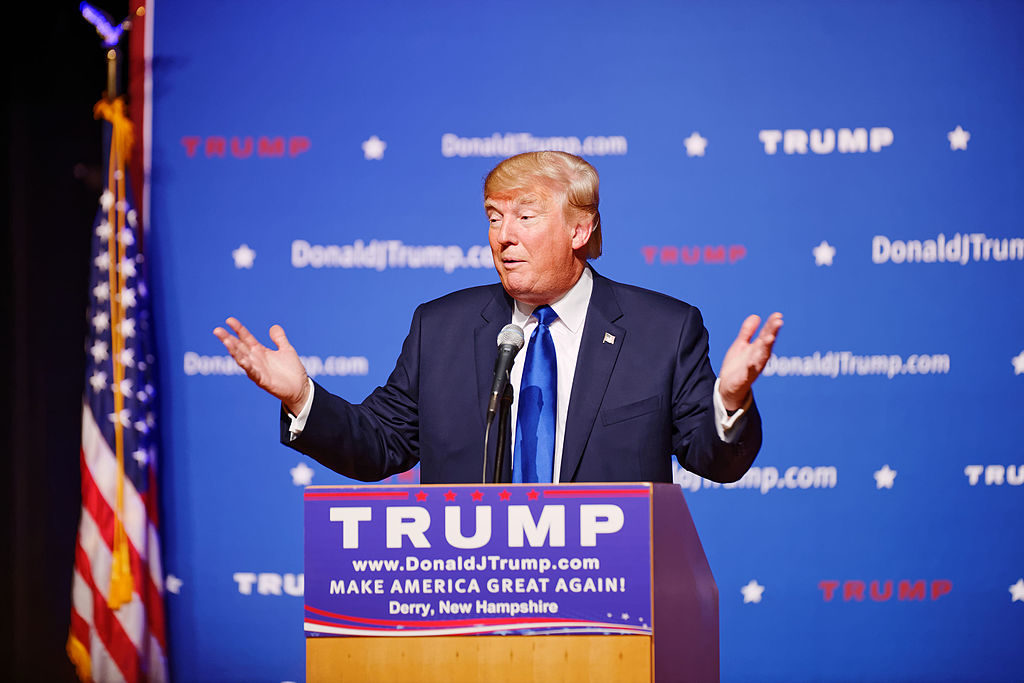The politics of American history

*Which great America is Trump talking about? The same one Michelle Obama mentioned, when slaves built mansions? Or the one Eva Longoria spoke of, of Texas-Mexicanos nine generations past? VL
![]() By Aaron Sanchez, Commentary & Cuentos (6 minute read)
By Aaron Sanchez, Commentary & Cuentos (6 minute read)
History is a frustrating thing. Most have learned that history is a certainty, a fact, a singular, straightforward, correct answer. Our confidence in its authoritative certainty was forged in history lessons from kindergarten through high school. Multiple-choice and true-or-false questions have honed a belief in its singular truth. The Declaration of Independence was signed in 1776. George Washington was the first president. Pearl Harbor was attacked in 1941. A+.
History is not a hard science. It is not just an accumulation of facts. History is deeply rooted in the humanities, more closely connected with literature than math or science. History is not physics—for every human action there is not an equal and opposite reaction. There is no formula that predetermines or explains the cause and effect of past and present. Historians craft the cause and explain the effect. While dates, times, bills, and people are facts, they have no larger meaning without the analytical work that people must do. History is how we make meaning. History is how we explain the past and make sense of the present. History is not infallible; it is interpretive. Yet, history has been used in the exercise of politics as a form of concrete evidence. Politicians and influential leaders have wielded history in their bidding to influence the American electorate.
The U.S. has a complicated relationship with its past, owing much to the popular concept of American exceptionalism, that the U.S. is unique and without comparison. The incomparable history of the nation is what makes it great. Yet, the past is not as important as the future. As early as 1839, John L. O’Sullivan, the influential journalist who coined the term “manifest destiny,” wrote of the U.S. as the “Great Nation of Futurity.” For O’Sullivan, the nation was great; its future was so promising because its past was so short. “The facts demonstrate at once our disconnected position as regards any other nation; that we have, in reality, but little connection with the past history of any of them, and still less with all antiquity, its glories, or its crimes….Our national birth was the beginning of a new history the formation and progress of an untried political system, which separates us from the past and connects us with the future only…we may confidently assume that our country is destined to be the great nation of futurity,” he wrote. For O’Sullivan America’s promised past would be its promising future.
In 1893, the president of the American Historical Association, Frederick Jackson Turner, delivered an address with the title “The Significance of the Frontier in American History.” In 1890, the Census had revealed that there was no longer a frontier on the continental U.S. Americans had finally filled up the space between the Atlantic and Pacific oceans (ignoring, of course, the Native-Americans). The closing of the frontier worried many in the nation, including Turner. For Turner, the frontier was where civilization met savagery, where Europeans crashed into untamed people and land and became Americans. America was great because of its frontier past. “American social development has been continually beginning over again on the frontier. This perennial rebirth, this fluidity of American life, this expansion westward with its new opportunities, its continuous touch with the simplicity of primitive society, furnish the forces dominating American character” he wrote. If the frontier was the defining characteristic of the nation’s past, if it was the force and the place that made America great and unique, what would happen to the nation now that that place and that force was gone? By the end of the 19th century, O’Sullivan’s great nation of futurity now had an uncertain future because a key phase of its past had come to a close, according to Turner.
Read more NewsTaco stories on Facebook. >>
By the middle of the 20th century, American economic growth and military strength convinced the nation that the future would be the storied American past once again. In 1941, Henry Luce declared the century “the America century.” American leadership would bring about unrivaled and unprecedented peace and prosperity. Luce was certain that history would prove him correct. Marco Rubio had this in mind with his campaign slogan: “the New American Century.”
Today, history as conjured in the popular imagination presents itself as a conundrum. America has always been great and will always be great, but the present is uncertain. Both parties during this election cycle have tried to use history to drive home their arguments about the American present and its importance in its future greatness.
Donald Trump’s campaign slogan, in particular, uses the past as a condemnation of the present—“Make America Great Again.” The “again” in his slogan plays into exceptionalist understandings of U.S. history. For Trump and his supporters, the nation was once great—as Reagan used puritan John Winthrop, the U.S. was a model for the world, “a city upon a hill”—but it is not any longer. Trump must restore America to its past greatness to ensure its future greatness. His phrase is a mastery of both American certainty and vagary. The exact date, the year, the epoch of American greatness is never explained. It is implied only that it once was and is no longer. The what of the greatness is not explained either. What exactly was great: the schools, the politics, the institutions, the economy? Trump’s historical incantation has indefinite contours while providing definite conclusions.
On the other side, the Hillary Clinton campaign and the Democratic Party are using history in a different way. Last week at the Democratic National Convention in Philadelphia, the Democratic Party offered a different understanding of U.S. history. Two women, in particular, put history’s use on display, Eva Longoria and Michelle Obama.
Longoria, an activist and actress, countered the popular narrative flow of American history as being a movement from east to west of primarily Euro-American families. Rejecting Trump’s belief that all Mexicans are recent arrivals and are predisposed to criminality, Longoria explained that her family had deep generational roots in South Texas. Nine generations had lived in the land that came to be a state in the U.S., but before was a Spanish colony, part of the Mexican Republic, and was once an independent nation. A wall could not keep out the Longorias because her family “never crossed the border, the border crossed us.” The past that Longoria built upon is different from Trump’s because in her recounting Latinos have been present in the American past since the middle of the 19th century. In Trump’s vague chronology of American decline, the nation was better before the arrival of Mexicans and Latinos. For Longoria, if Latinos were part of the nation’s storied past and are an important part of the present, then they will certainly have a larger role in its future—and that was great.
First Lady Michelle Obama used the past to show the promise of the present and the potential of the future. Obama is a part of history herself, a member of the first Black First Family in U.S. history. She used her speech to reflect on how far the nation had come, that America had not always been great. She pointedly reminded the American public: “I live in a house built by slaves.” Some Americans, she reminded us, had not only paid the price for American greatness, they were denied more than just their profit, but denied the promise of a future in the nation of their own making. Obama revealed that America was never made great through its exclusions; its greatness was limited because of them.
There is no singular “American history,” but many, many stories that must be compiled to tell the history of America. For minority communities, Trump’s restorationist themes of returning to a utopian past are worrisome. For them, the history of this nation is filled with examples of discrimination, exclusion, and oppression. Their experience with this history informs their sense that this nation is not perfect. It is far from it, but it can be made better. It is not a pristine past that makes the nation perfect. It is the succession of generations that have struggled to make the nation a more perfect union for all of its people.
This article was originally published in Commentary & Cuentos.
[DNC, Michelle Obama, Donald Trump, photos courtesy of Wiki Commons]





